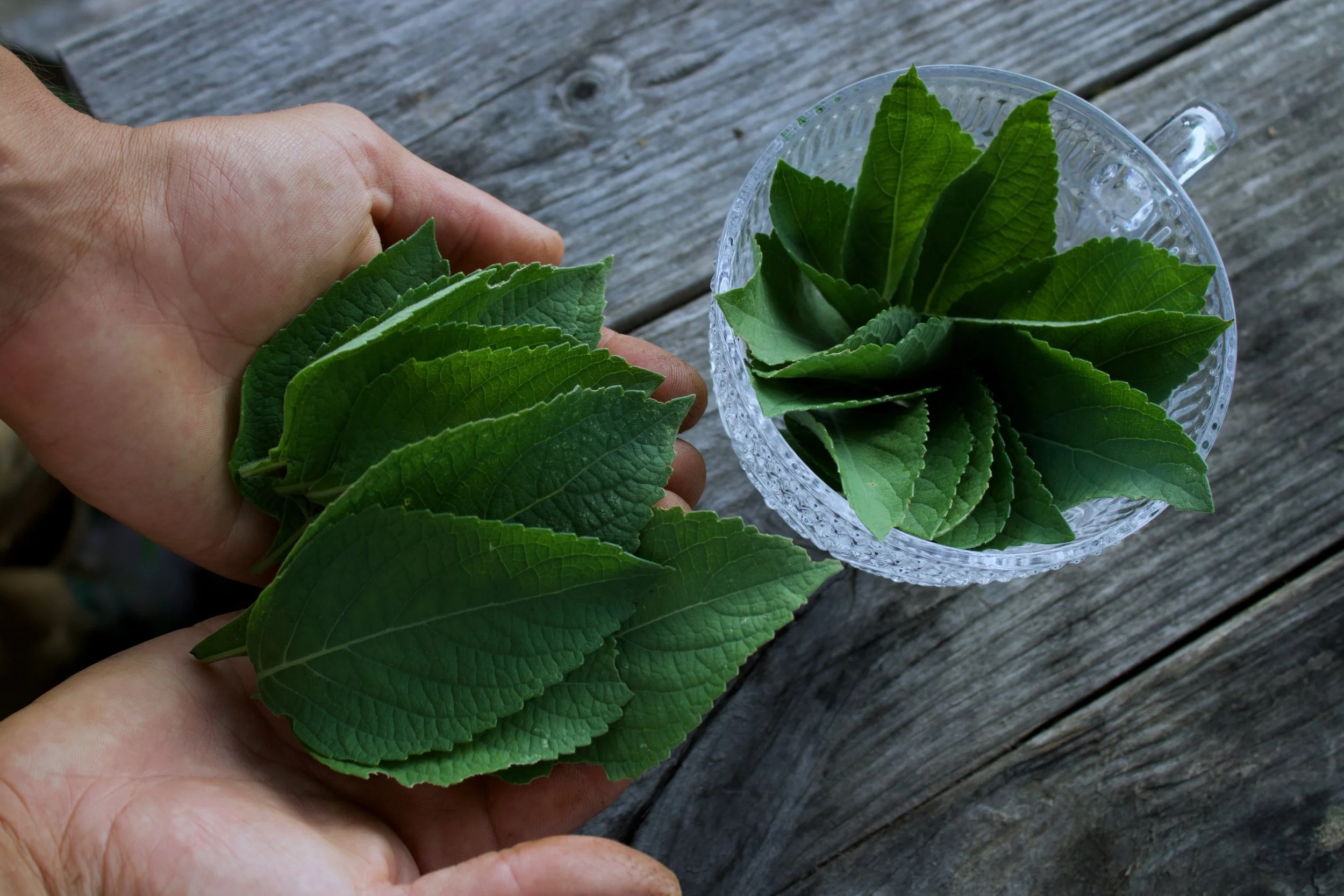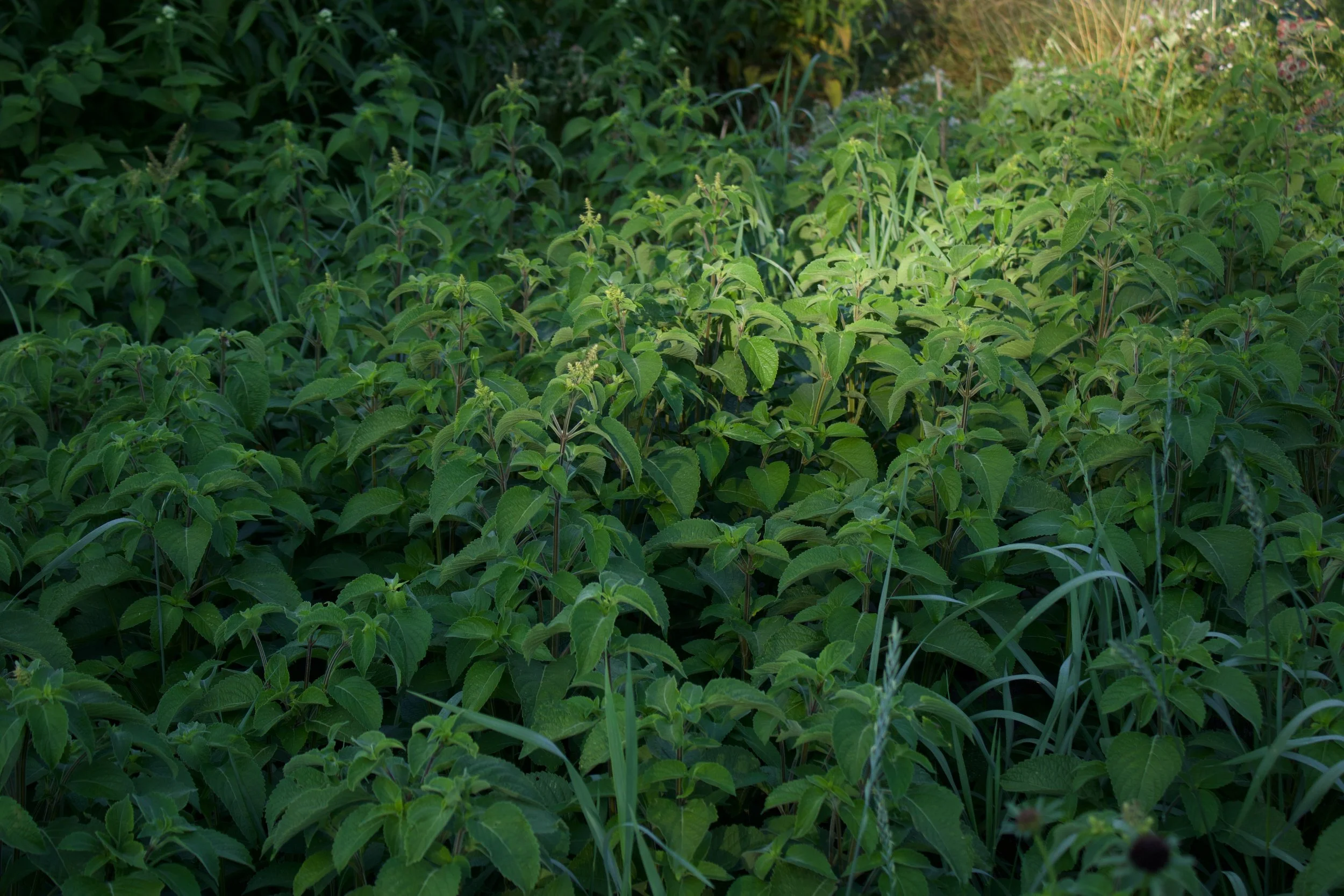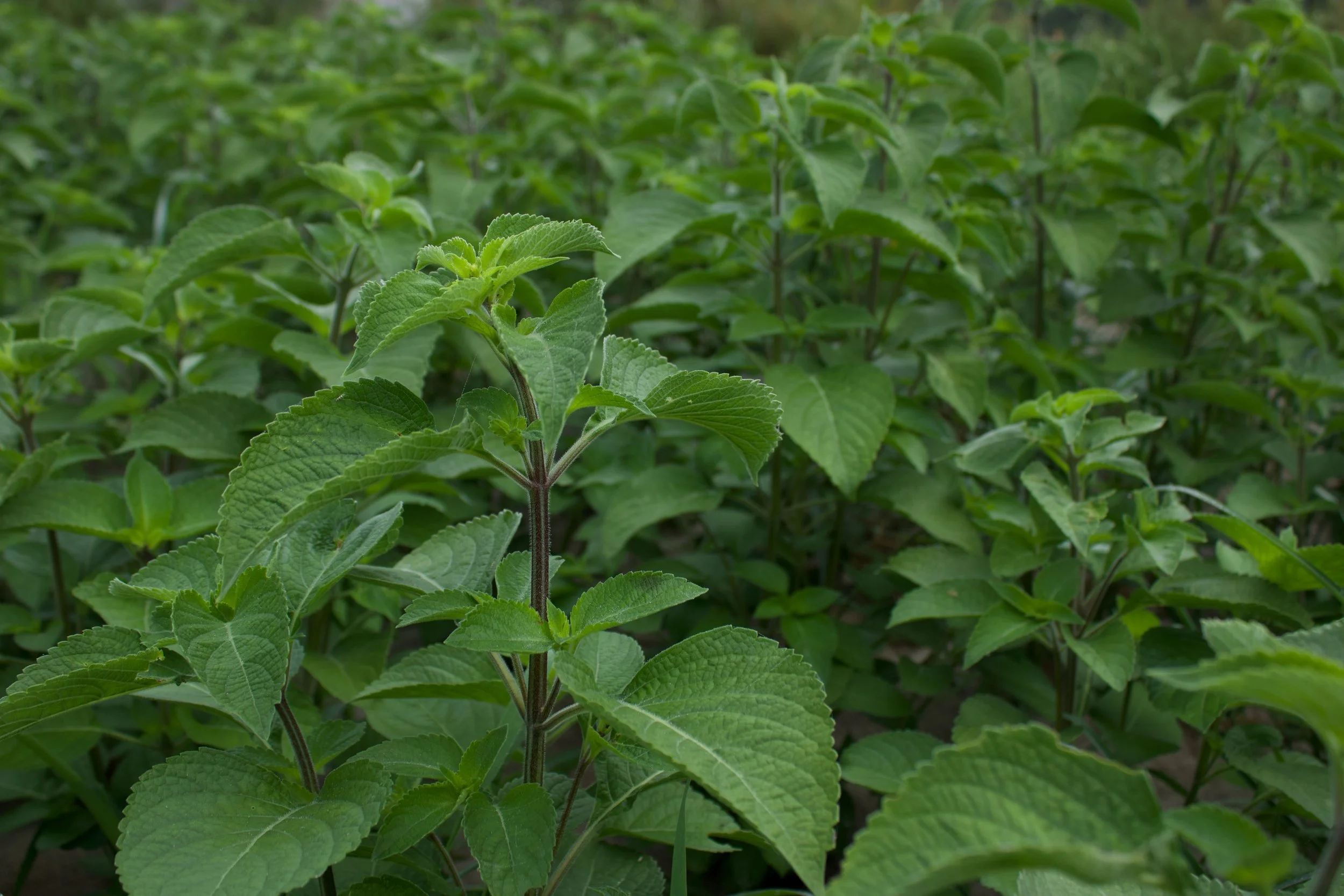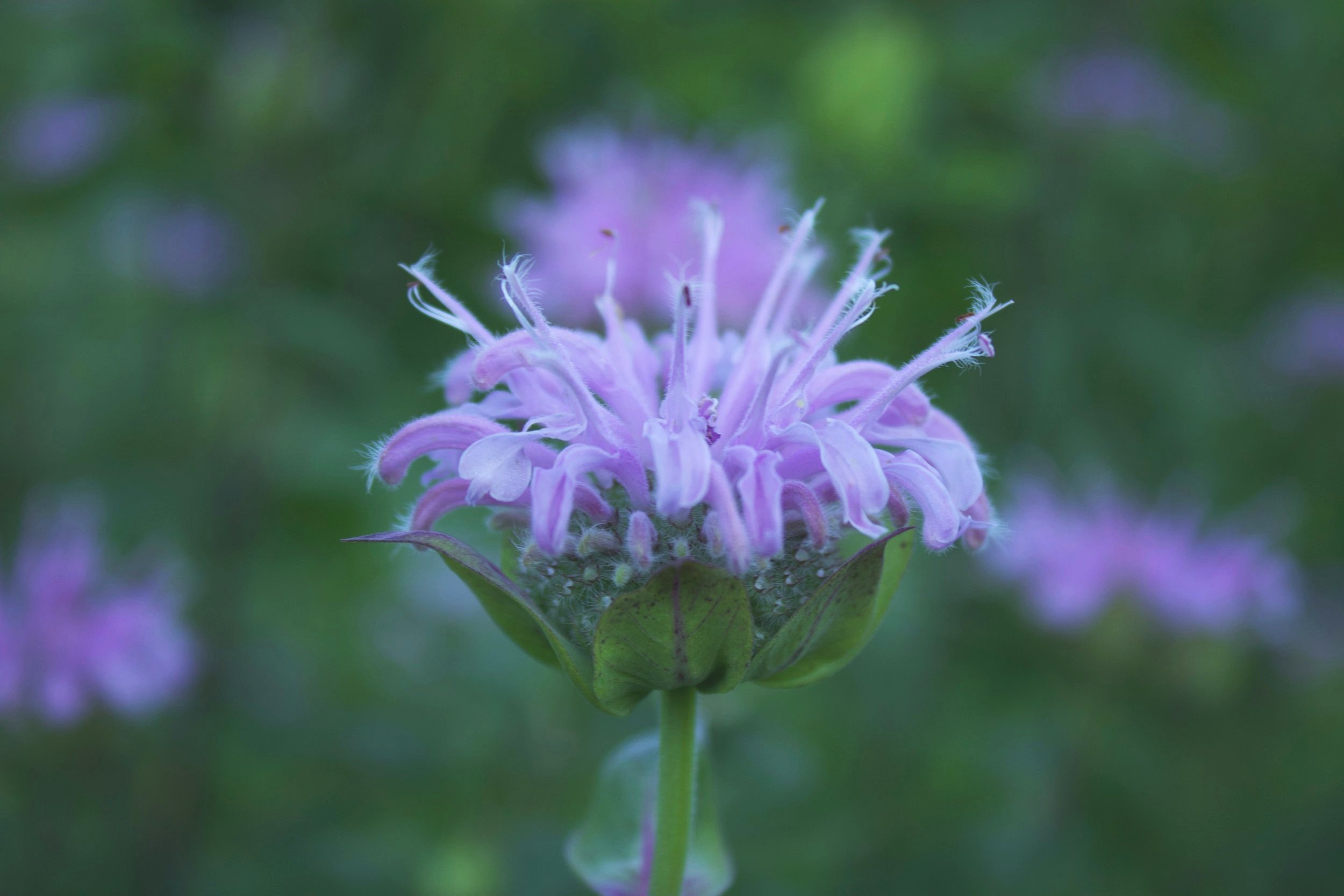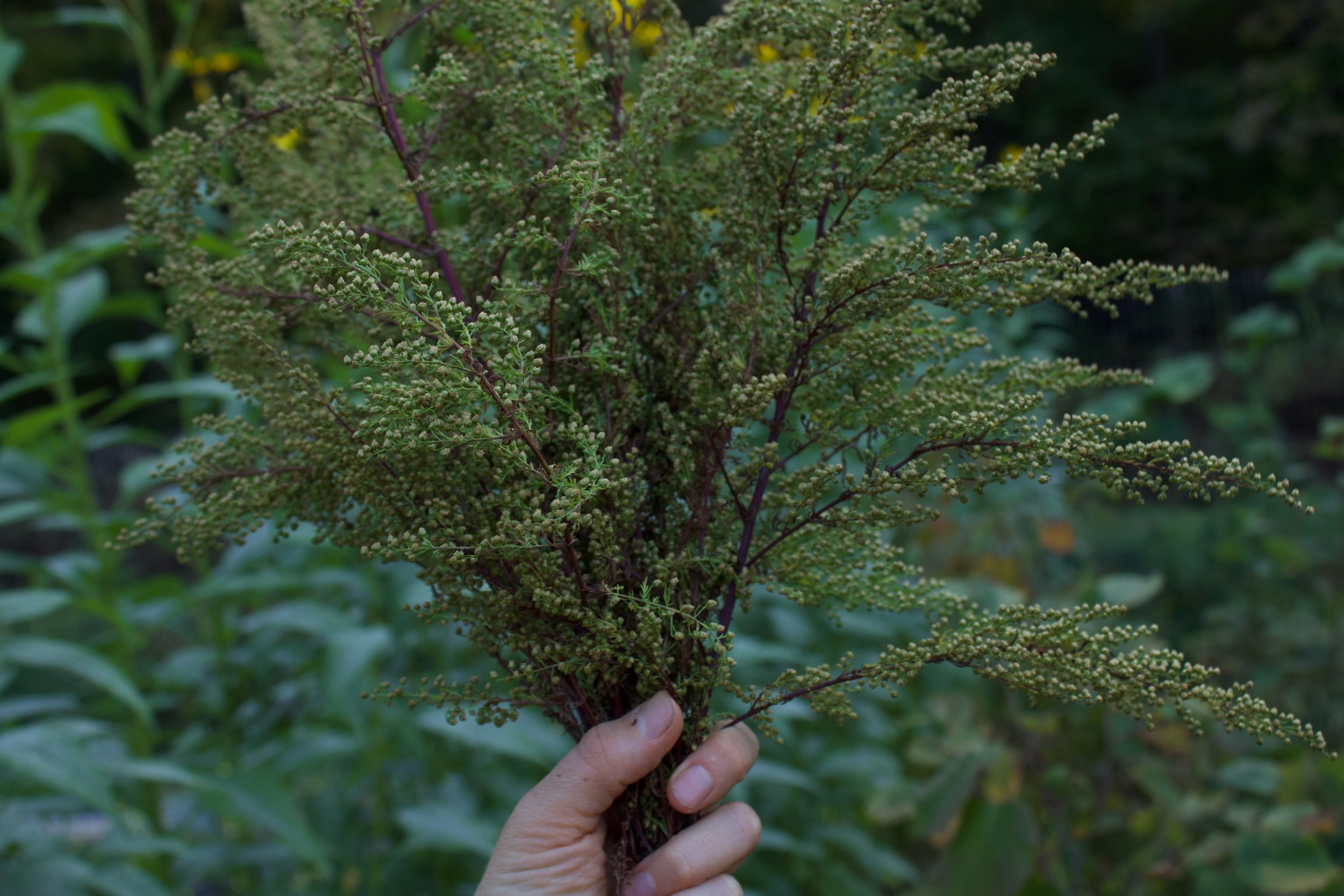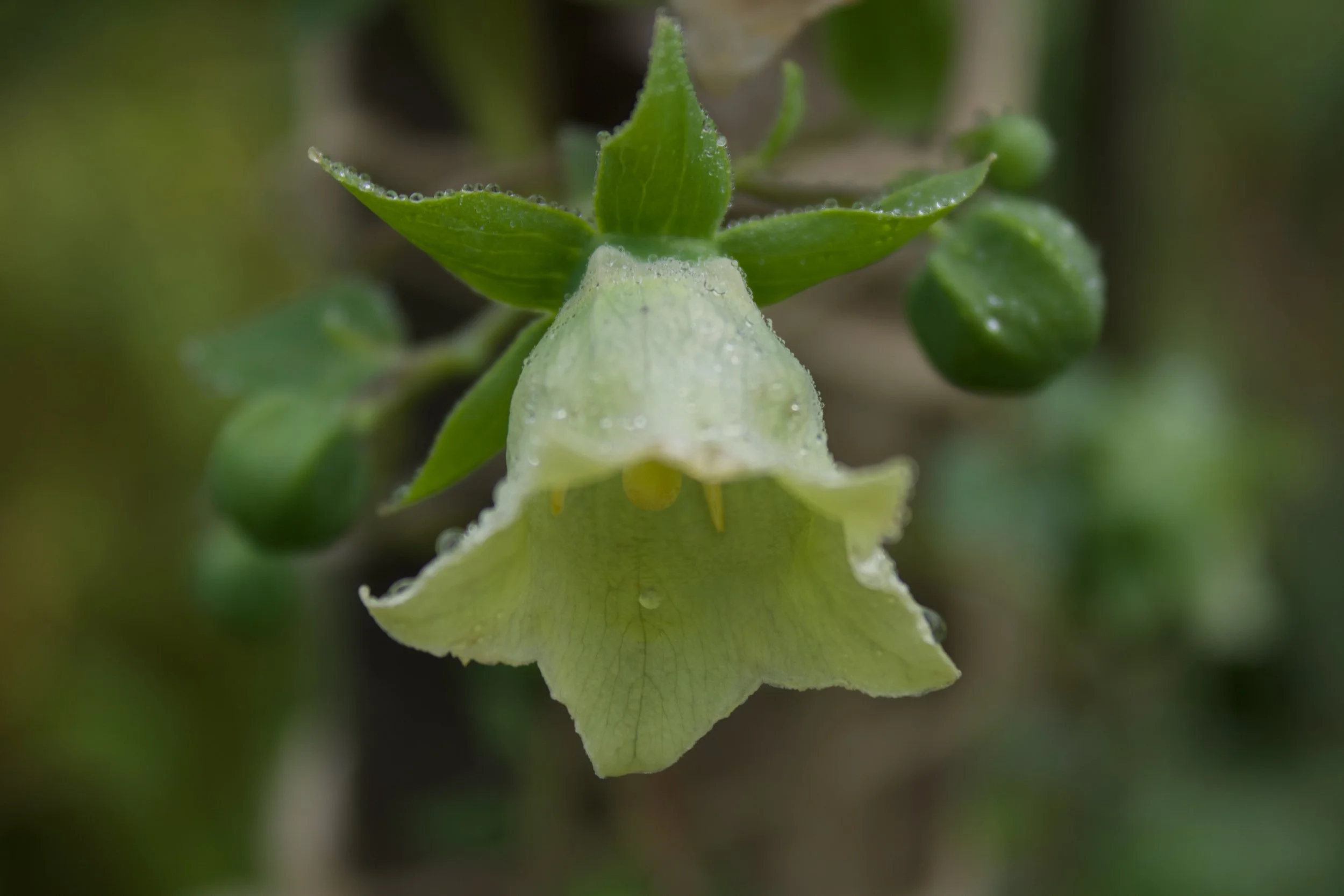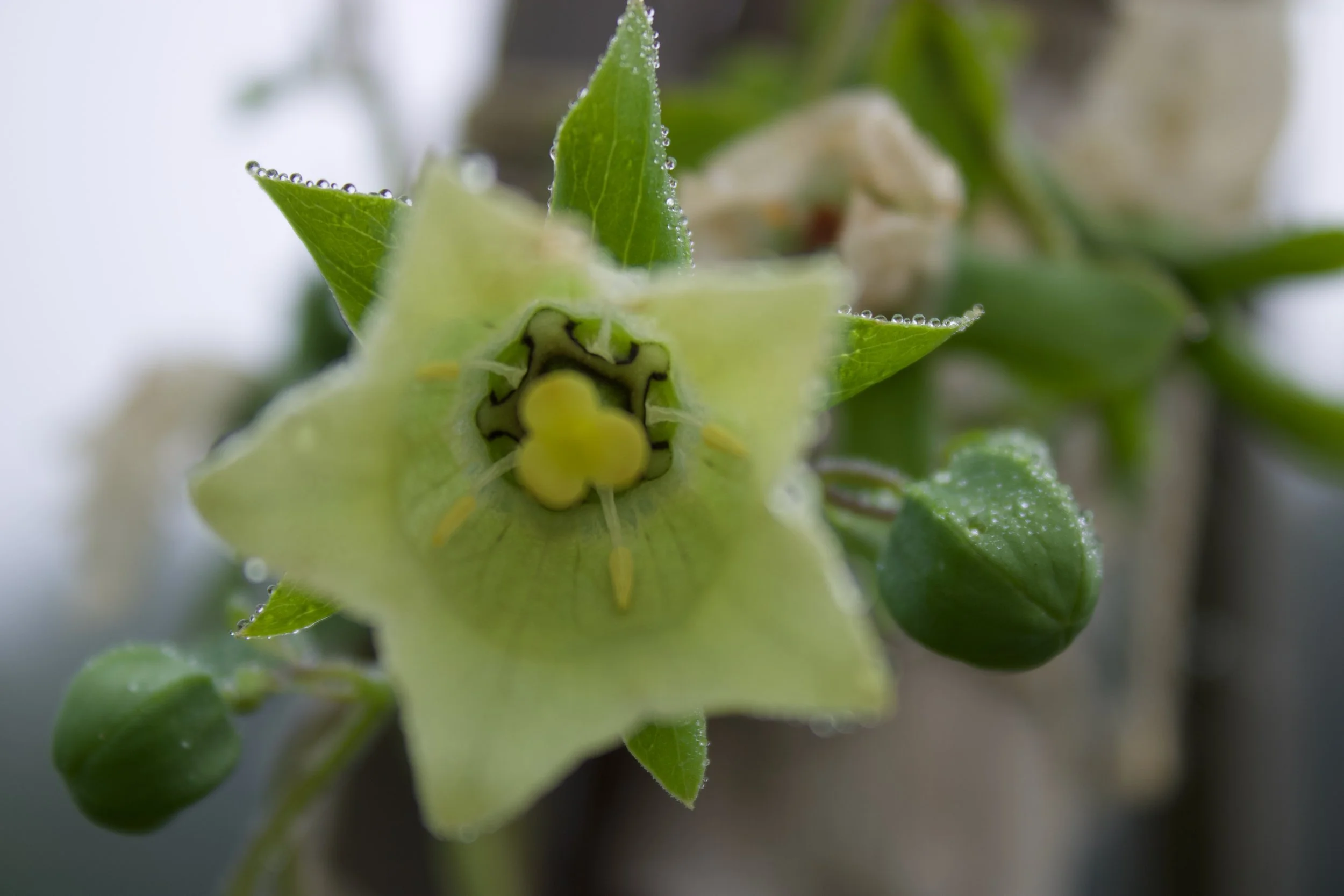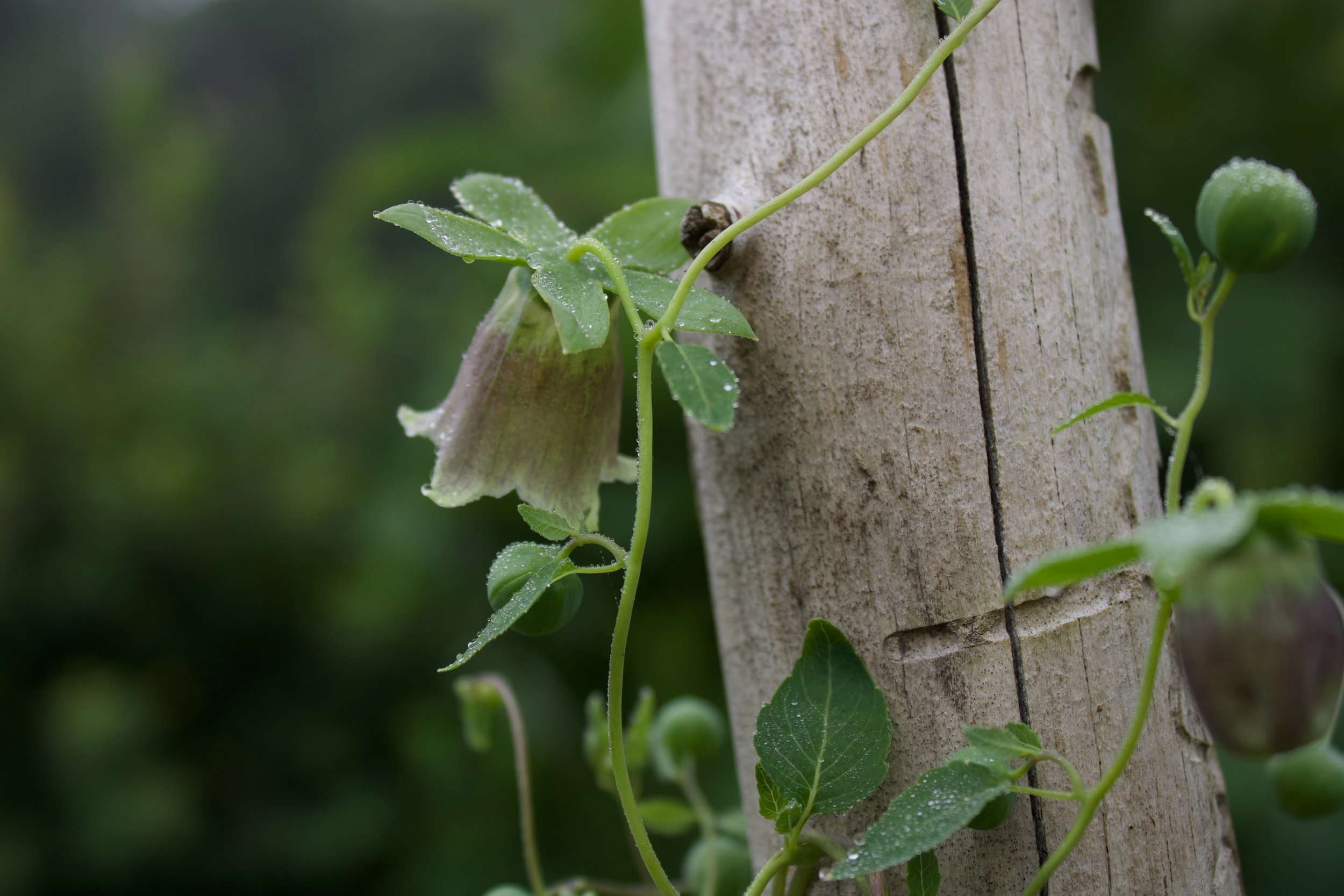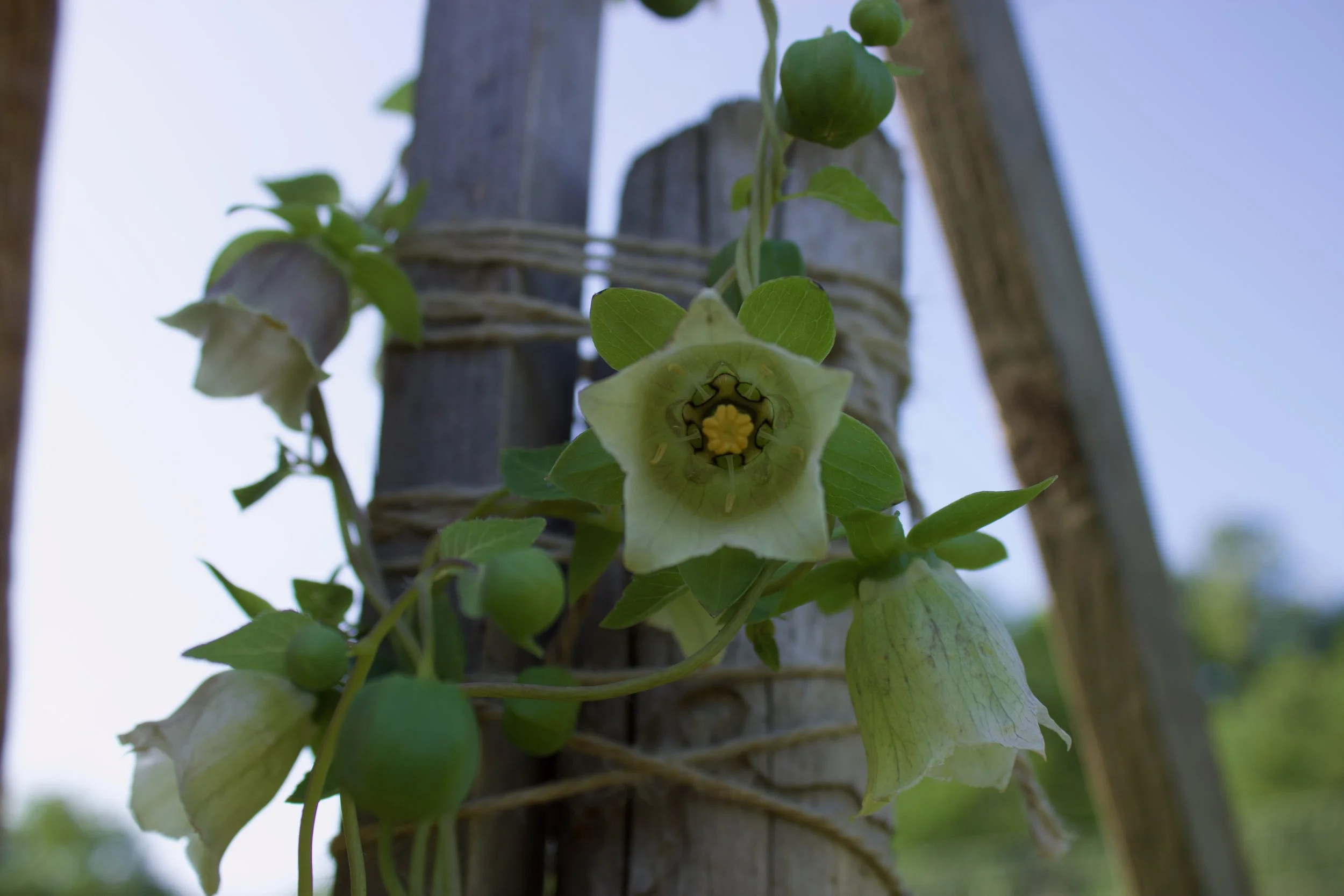Ocimum gratissimum
Native to tropical and subtropical Africa and Asia. This basil goes by many local names throughout Africa and is called Scent Leaf in Nigeria and the African Diaspora. In the Indian subcontinent it is called Vana, meaning “tree” in Sanskrit. It is indeed a wild and hardy perennial in its tropical home and can reach 6 feet in its native range! Grown as a rugged woody annual in regions that experience killing frosts. In our zone 5 we start Vana by early March (for seed saving purposes) and even in our short growing season these beautiful plants easily reach three feet tall with a thick bushy habit. Thrives through heat, drought and is very disease resistant even as our cool and wet autumns approach. The dense, lush and velvety foliage gives off an invigorating clove smell with the slightest summer breeze. These powerful eugenol rich leaves are used to flavor traditional cuisine and also for medicinal purposes to aid stomach ailments, colds and for use as insect repellant. Vana Tulsi Tea is always what we crave when the inkling of a cold sets in as it invigorates and warms you from head to toe. 2026 Germination Rate 60%. Extra seed included in every packet.
Germination of these seeds are light dependent (photoblastic). When sowing, gently press down the soil to create a shallow indent, sprinkle seeds and lightly cover with soil. Do not bury too deep and be sure to keep the surface of your trays moist as you await your seeds to germinate. When watering, use the mist setting on a sprayer hose to gently moisten without too much pressure. Using a spray bottle with water is also a good idea. Heavy water pressure may push the surface sown seeds out of the trays!
Sowing & Growing Information Coming Soon!

